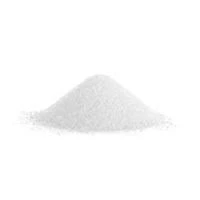
Chemicals Used in Water Treatment Processes and Their Applications
Water Treatment Chemicals Essential Solutions for Clean Water
Water is essential for life, making its quality paramount for human health and environmental sustainability. Water treatment chemicals play a crucial role in ensuring that our water supply is safe, clean, and suitable for various uses, from drinking to industrial processes. This article explores the importance of water treatment chemicals, their types, applications, and the challenges faced in the industry.
Importance of Water Treatment Chemicals
As urbanization and industrial activities increase, so do the contaminants in our water sources. Chemicals used in water treatment help in removing impurities, pathogens, and pollutants, ensuring that the water is both safe for consumption and suitable for agricultural and industrial use. The implementation of water treatment chemicals is vital for
1. Public Health Unsafe drinking water is a leading cause of disease. Water treatment chemicals help eliminate harmful microorganisms such as bacteria, viruses, and protozoa which can cause serious illnesses.
2. Environmental Protection Proper treatment prevents pollutants from entering natural water sources, helping to protect aquatic ecosystems and maintain biodiversity.
3. Compliance with Regulations Governments around the world enforce strict regulations regarding water quality. The use of appropriate treatment chemicals ensures that municipalities and industries meet these legal standards.
Types of Water Treatment Chemicals
Water treatment chemicals can be broadly categorized based on their functions
1. Coagulants These chemicals (such as aluminum sulfate and ferric chloride) help to clump together particles and impurities in water, making them easier to remove during filtration.
2. Flocculants Once coagulation occurs, flocculants such as polyacrylamide assist in forming larger aggregates or flocs, which settle out of the water, facilitating clearer water.
3. Disinfectants Chemicals like chlorine, ozone, and chloramines are used to kill pathogens in the water supply. Each has its advantages and shortcomings in terms of efficacy, taste, and health concerns.
4. pH Adjusters Chemicals like sodium hydroxide or sulfuric acid are often used to adjust the pH of water. Maintaining the correct pH is essential for the effectiveness of other treatment chemicals and for protecting plumbing systems.
5. Corrosion Inhibitors In order to prevent pipe corrosion, chemicals such as phosphates are added, which can also help in reducing the leaching of harmful metals like lead and copper into the water supply.
water treatment chemicals

Applications of Water Treatment Chemicals
Water treatment chemicals are used in various applications
- Municipal Water Treatment Plants Local governments use these chemicals to treat drinking water in compliance with health standards. The treatment process typically involves multiple steps, combining various chemicals to ensure water safety.
- Industrial Water Treatment Industries, especially those that use significant amounts of water, such as power plants and processing plants, use specialized chemical treatments to ensure water quality for their operations and to comply with environmental regulations.
- Wastewater Treatment Chemicals play a vital role in treating wastewater before it is released back into the environment. This treatment helps to remove harmful substances, protecting local ecosystems.
Challenges in the Water Treatment Chemical Industry
Despite their essential role, the water treatment chemical industry faces several challenges
1. Regulation Compliance Companies must navigate an intricate web of local, national, and international regulations. Stricter rules regarding chemical usage require ongoing adaptation and innovation.
2. Environmental Impact The production, transportation, and disposal of water treatment chemicals can have environmental consequences. Finding sustainable options is crucial for minimizing these impacts.
3. Emerging Contaminants New pollutants, such as pharmaceuticals and personal care products, are increasingly found in water sources. Adapting treatment processes to effectively deal with these contaminants is a pressing concern.
4. Public Perception Public concern over chemical usage, particularly in drinking water, poses challenges in building trust. Transparent communication regarding the safety and necessity of these chemicals is essential.
Conclusion
Water treatment chemicals are indispensable tools in our pursuit of clean and safe water. By understanding their types, functions, and applications, we can appreciate the complexity and significance of water treatment processes. As we face new challenges in water quality management, ongoing innovation in both chemical formulation and applications will ensure that we continue to protect our most vital resource—freshwater.
-
Pure Sodium Dichloroisocyanurate Dihydrate | Powerful DisinfectantNewsAug.29,2025
-
Industrial Chemicals: Quality & Purity for Every IndustryNewsAug.28,2025
-
Nitrile Rubber Honoring Strict Production StandardsNewsAug.22,2025
-
Aspartame Ingredients Honoring Food Safety ValuesNewsAug.22,2025
-
Fertilizer for Balanced Plant NutritionNewsAug.22,2025
-
Cyanide Gold Processing with High Purity AdditivesNewsAug.22,2025
-
Formic Acid in Textile Dyeing ApplicationsNewsAug.22,2025
Hebei Tenger Chemical Technology Co., Ltd. focuses on the chemical industry and is committed to the export service of chemical raw materials.
-

view more DiethanolisopropanolamineIn the ever-growing field of chemical solutions, diethanolisopropanolamine (DEIPA) stands out as a versatile and important compound. Due to its unique chemical structure and properties, DEIPA is of interest to various industries including construction, personal care, and agriculture. -

view more TriisopropanolamineTriisopropanolamine (TIPA) alkanol amine substance, is a kind of alcohol amine compound with amino and alcohol hydroxyl, and because of its molecules contains both amino and hydroxyl. -

view more Tetramethyl Thiuram DisulfideTetramethyl thiuram disulfide, also known as TMTD, is a white to light-yellow powder with a distinct sulfur-like odor. It is soluble in organic solvents such as benzene, acetone, and ethyl acetate, making it highly versatile for use in different formulations. TMTD is known for its excellent vulcanization acceleration properties, which makes it a key ingredient in the production of rubber products. Additionally, it acts as an effective fungicide and bactericide, making it valuable in agricultural applications. Its high purity and stability ensure consistent performance, making it a preferred choice for manufacturers across various industries.





